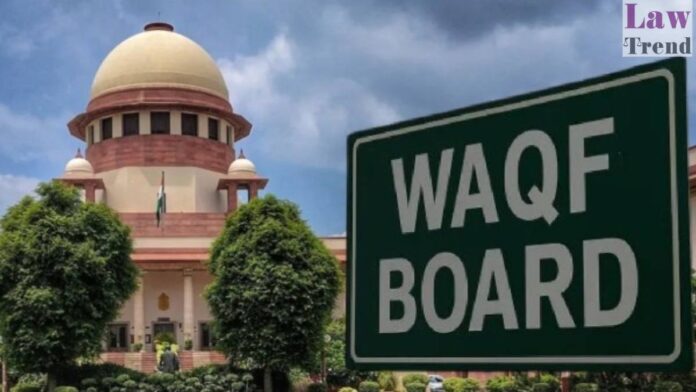New Delhi, May 21, 2025 — In a significant development, the Centre on Wednesday firmly told the Supreme Court that no individual or institution can assert ownership over government land, reiterating its legal right to reclaim such properties — even if they are declared waqf based on historical usage.
The assertion came during the ongoing hearing challenging the constitutional validity of the Waqf Act, 2025. Appearing before a bench led by Chief Justice B R Gavai and Justice Augustine George Masih, Solicitor General Tushar Mehta defended the legislation and dismissed the petitioners’ claims as “misleading and false.”
“Government land belongs to the government — nobody has the right over it,” Mehta said. “There is a Supreme Court judgment which affirms that if a government property has been declared waqf, it can still be reclaimed by the government.”
The contentious legal principle at the heart of the case — “waqf by user” — refers to properties historically used for religious or charitable purposes without formal documentation, which may be treated as waqf under customary practice. Critics argue that this opens the door to claims over public land based solely on usage.
Mehta emphasized that Parliament has full competence to enact the Waqf Act, 2025, and noted that no directly affected parties have challenged its validity. He cited inputs from state governments and state waqf boards that were consulted during the legislative process, underlining the law’s inclusive drafting.
The Centre’s written submission stated that waqf, by nature, is a secular administrative concept, and the law should not be stayed as it falls within the constitutional framework. “There is a presumption of constitutionality in favour of the Act, and courts do not stay statutory provisions lightly,” the note argued.
During the proceedings, the bench reiterated this legal principle. “There is a presumption of constitutionality in favour of every statute. For interim relief, you have to make out a very strong and glaring case,” Chief Justice Gavai remarked to senior advocate Kapil Sibal, who led arguments against the Act.
The Centre has asked the court to narrow the hearing to three central issues:
- The power to denotify waqf properties declared by deed, usage, or court ruling;
- The composition of state waqf boards and the Central Waqf Council — with petitioners objecting to provisions that exclude non-Muslims except ex-officio members;
- A clause stating that a waqf property will not be treated as waqf if the district collector concludes it is government land after an inquiry.
The Waqf Act, 2025, came into force last month following President Droupadi Murmu’s assent on April 5. The legislation was passed by the Lok Sabha with 288 votes in favour and 232 against. In the Rajya Sabha, 128 members supported the bill while 95 opposed it.




